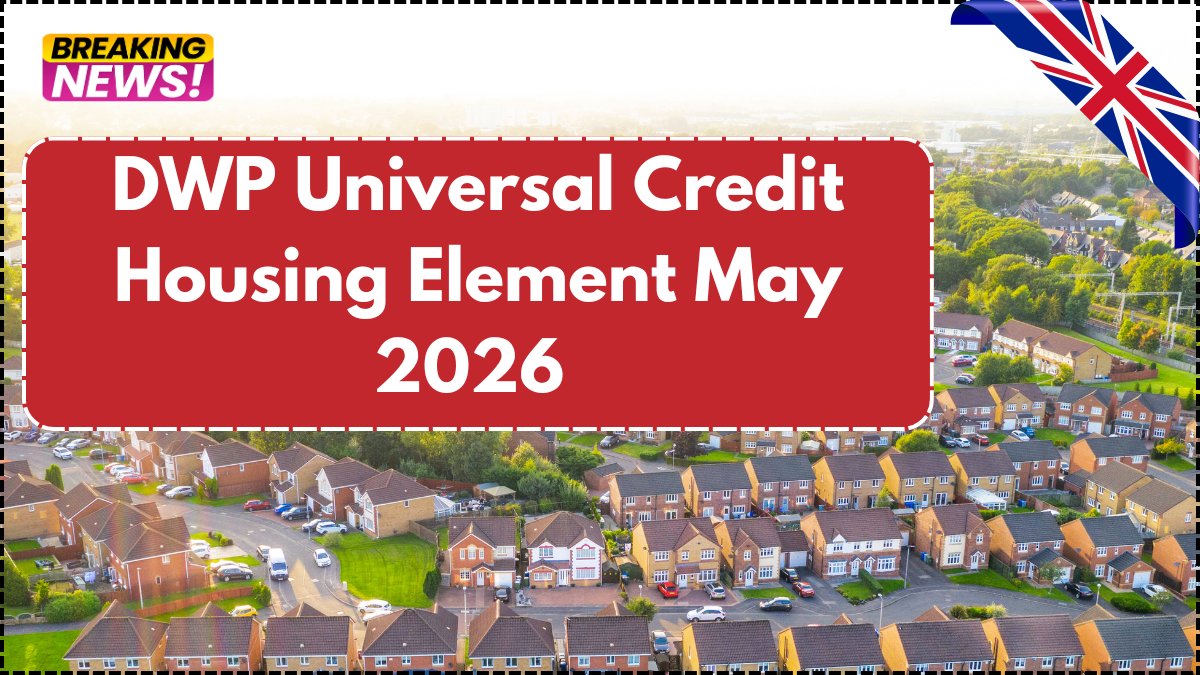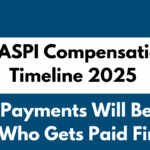As of May 2026, the Department for Work and Pensions (DWP) is implementing a significant update to the Universal Credit Housing Element, aimed at better aligning rent support with real-world housing costs and payment cycles. This change is expected to impact millions of claimants across the UK, especially those who depend on housing support as part of their monthly Universal Credit entitlement.
The newly adjusted payment schedule will aim to resolve long-standing issues with rent arrears caused by timing mismatches between rent due dates and Universal Credit payments. By May 2026, a synchronized disbursement model will be in place, allowing payments to better reflect actual rental obligations. This marks a pivotal shift in how housing assistance is administered, designed to enhance financial stability for tenants and landlords alike.

What Is the Universal Credit Housing Element?
The Housing Element is a component of Universal Credit 2026 that provides financial assistance for rent and housing costs. This benefit is vital for individuals and families on low incomes, helping them to afford safe and stable accommodation. The amount awarded varies depending on several factors, such as local rent levels, household size, and property type.
With the DWP Universal Credit Housing Element May 2026 revision, the payment structure will become more responsive and timely. The DWP plans to integrate Local Housing Allowance (LHA) updates more fluidly into the system and improve transparency for claimants.
Revised Payment Timing and Housing Support Enhancements
The upcoming adjustment introduces a tiered payment timeline, dividing claimants based on tenancy types and geographical regions. For example, those in private rentals may receive their housing support payments two days ahead of their rent due date, while social housing tenants may see payments bundled with their standard Universal Credit disbursement.
Here’s an overview of the expected changes:
| Category | Current System | May 2026 Update |
|---|---|---|
| Payment Frequency | Monthly (same day as UC) | Aligned to tenancy rent due dates |
| Private Tenants | Payment may lag behind rent deadlines | Advance payment window introduced |
| Social Housing Tenants | Standard UC payment includes housing | Housing Element may be paid separately |
| Rent Allowance Adjustments | Annual LHA reviews | Bi-annual adjustments based on market |
| Claimant Access | Online statements with delays | Real-time portal updates and alerts |
These updates are designed to ensure housing payments arrive when they’re actually needed, minimizing the risk of arrears and evictions. Importantly, the changes also aim to make the system more adaptive to shifting rental markets.
How Will This Impact Claimants?
The 2026 changes to the Universal Credit Housing Element will benefit tenants by giving them more control and predictability over their finances. Instead of juggling mismatched timelines, individuals will be able to plan ahead with greater confidence.
Landlords, too, are likely to see fewer payment issues, as more timely rent payments can reduce administrative burdens and lower arrears. In addition, the DWP’s new digital tracking system will allow both tenants and property owners to see real-time updates about payment statuses, eligibility changes, and rent allowance adjustments.
Preparing for the Change: What You Should Do Now
Although the changes won’t go live until May 2026, claimants are encouraged to begin preparations early. This includes verifying tenancy agreements, updating payment preferences, and ensuring contact details with DWP are accurate.
Housing advisors and local councils are being briefed on the upcoming reforms to provide better guidance to affected individuals. If you’re currently receiving the Housing Element, keep an eye on official communications from DWP and utilize online support tools when they become available.
Conclusion
The DWP Universal Credit Housing Element May 2026 update reflects a much-needed modernization in how housing support is administered. With better timing, improved transparency, and more tailored rent allowance adjustments, the new system aims to enhance the financial well-being of claimants while reducing complications for landlords. As we move closer to the rollout, staying informed and proactive will be key to maximizing these benefits.
FAQ
What is the Housing Element in Universal Credit?
The Housing Element is a portion of Universal Credit designed to help cover your rent. It’s especially critical for low-income households who depend on this support to maintain stable housing.
When will the new payment schedule begin?
The updated schedule will be implemented starting May 2026 across the UK.
Will my rent be paid directly to my landlord?
It depends on your circumstances. In many cases, private tenants receive the payment directly, while in others—particularly vulnerable cases or social housing—payments may go straight to landlords.
How do I find out how much rent allowance I’m eligible for?
You can use the DWP’s housing calculator or consult your local benefits office for a personalized estimate based on your location, income, and household setup.
Can I opt into the new system early?
No, the changes will be rolled out universally starting in May 2026. However, you can prepare by reviewing your tenancy and benefit documentation ahead of time.
Click here to learn more
Akesh is a talented content writer known for creating captivating and impactful narratives. He understands what resonates with audiences and tailors his content to inform, inspire, and engage. From blog posts and articles to marketing copy, his work consistently combines creativity with clarity. His skillful writing strengthens our brand’s voice and ensures our message leaves a meaningful impression.



